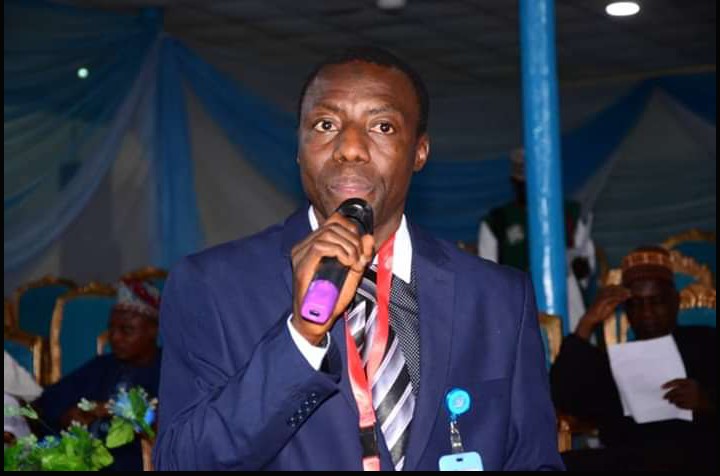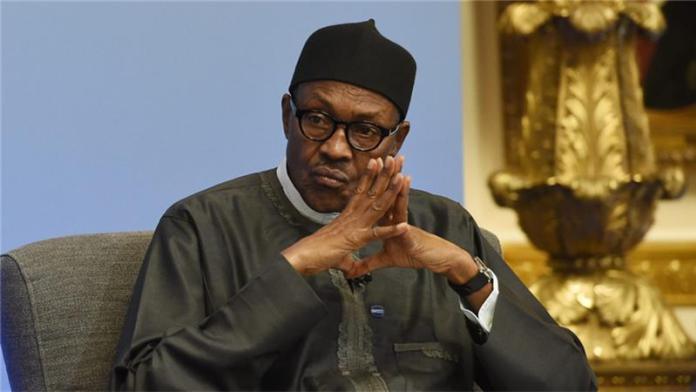By: Nura Garba
Many people around the world have continued to ask several questions with regard to the lockdown being experienced which has kept them away from daily activities. The prominent of which is when will the lockdown end in the face of coronavirus?
It is no longer news that the spread of coronavirus has infected over 2.2 million people with more than 156,000 deaths, increasing concern over the continuous spread and fatalities in the coming weeks.
With over 33,000 deaths in America, the Vice President, Mike Pence projected 130,000 deaths in the country. This has sparked more fears and apprehension despite the fact that President Donald Trump has started mapping out plans for reopening of the country’s economy in phases. But experts warn against doing that now.
Since the directive of the two-week lockdown of three states of Abuja, Lagos and Ogun as part of the roll out plans to contain the spread of the virus by the President on 30th March, 2020, the virus has continued to rear its ugly head. This forced the President to add another two-week lockdown in the three states through a national broadcast on 11th April, 2020.
As it stands on Saturday, 18th April, 2020, 493 people have been tested positive in Nigeria and 17 people were confirmed dead. This further raises more concern especially with the rapid increase in positive cases and fatalities.
One area of concern is that 20 states in the country have been affected and stakeholders have projected that in few coming weeks all states would be affected.
Many Nigerian states have followed suits with the lockdown directives because experts argued that it is the best way to contain the spread of the virus.
Testing
Nigeria’s policy is one of targeted testing. This involves identifying those who are most likely to be infected, namely those who have just come back from other countries and those they have been in contact with.
In terms of contact tracing, the Nigeria Centre for Disease Control has identified between six and seven thousand contacts cumulatively. The focus of last week was to improve the level of contract tracing, made easier by the lockdown.
With contact tracing, each new case tends to have about 30-40 contacts to follow up. Every contact is followed up with for 14 days. To date, about 30% of all the cases in the country have been found via contact tracing.
Even though, we cannot compare our healthcare facilities with that of US, the rate at which people are tested is alarming. This is because only a little over 5,000 people were tested and the United States has rolled out plans to test 120,000 people daily. This is one area that Nigeria should expedite action in order to establish laboratories in all states of the federation.
In South Africa, in the face of increasing local transmission—and the threat of Covid-19 spreading to the majority of the country, who are not able to afford private healthcare or testing—the National Health Laboratory Service has said that by the end of April, it will be able to process approximately 36,000 tests in 24 hours.
Africa now has more than 1,000 deaths from COVID-19, the Africa Centers for Disease Control and Prevention said on Saturday, with Nigeria currently has nearly 500 cases of the virus.
The World Health Organization noted a 51% increase in cases in Africa and a 60% jump in deaths in the past week. But the WHO chief warned that because of a shortage of testing “it’s likely the real numbers are higher than reported.”
The Honorable Minister of Health, Dr Osagie Ehanire two days ago said that there are 12 functional COVID- 19 testing laboratories in Nigeria with a capacity to test 1,500 samples daily. This is quite unfortunate looking at the mass population. Nigeria 2020 population is estimated at 206,139,589 million people at mid -year according to United Nation data. Nigeria population is equivalent to 2.64% of the total world population. In view of this, how can we know the exact number of people with positive cases? That is why we still have somewhat inaccurate cases of covid 19 because of lack of testing laboratories.
For instance, with the population of South East and the nature of their people who usually travel outside the country and within the country especially Lagos and Abuja has far less cases of the virus compared to a single state of Kano with 27. Does it mean they conceal their people from being tested or simply put it that there are no testing facilities in the region?
This is a critical time when the country must scale up testing samples in order to identify the positive cases with a view to containing them. If care is not taken Nigeria may face one of the biggest health challenges in history.
Abba Kyari’s Death
Read Also:
Nigeria recorded its first high profile death on Friday, 17th April, 2020, when the Chief of Staff to the President Muhammadu Buhari, Abba Kyari died of coronavirus complications. His death has triggered more concerns in the country to the danger associated with the virus and its deadly consequences.
Abba Kyari had earlier been tested positive following a trip to Germany and Egypt, according to Nigerian media. So, too, have at least three of his staffers. Nigerian media described Kyari as “very sick,” and that he had been removed from Abuja to an infectious disease treatment center in Lagos. Kyari reportedly began coughing heavily during a meeting that included, among others, the president and vice president.
President Buhari said “Mallam Abba Kyari was the very best of us. He was made of the stuff that makes Nigeria great. Rest In Peace, my dearest friend”.
“To his loving wife and doting family who survive him, I extend my heartfelt sorrow at your loss,” he said.
The Progressive Governors Forum has described the death of the Chief of Staff to the President, Mallam Abba Kyari, as a call for united action against the spread of COVID-19.
Chairman of the forum and Governor of Kebbi State, Abubakar Bagudu, said this in a statement he signed and made available to newsmen in Abuja, via email, on Saturday.
Bagudu said, “The death of Mallam Abba is a further call on all Nigerians to be united in the fight against the spread of COVID-19.
“As Progressive Governors, we, on this sad day, hereby re-affirm our unconditional support to the laudable initiatives of the President Buhari-led Federal Government.”
The forum said it received news of the death of the presidential aide with heavy heart and gratitude to Allah (SWT) for a life well blessed.
The statement further read, “We, the Progressive Governors Forum (PGF), join the family, President Muhammadu Buhari GCFR and the nation to pray for the repose of the soul of our dear and beloved Mallam Abba Kyari. His death is a loss to the nation and the Nigerian progressive community.
“We pray to God Almighty to grant the family the fortitude to bear this heavy loss. May Allah reward all the good work of Mallam Abba, forgive his limitations and bless what he left behind.
“We call on all Nigerians, irrespective of our political, religious, ethnic, social status or any other differences, to support the Federal Government in the fight against this deadly virus.
Many Nigerians have prayed for the repose of the deceased and the family to have the fortitude to bear the loss.
Will the Lockdown be Relaxed?
As it is globally, many countries are extending the lockdown directive due to the rising cases of the pandemic as the situation is becoming beyond their control.
In Nigeria, with the demise of Abba Kyari and the increase in the cases to almost 500, it is unlikely that the lockdown will be relaxed. Some states are yet to record the covid-19 cases but implemented the lockdown measure. Other states with that have not taken measures should do so to contain the virus before it spreads.
Nigerians should continue to stay at home and observe social distancing as a way of precautionary measures to contain the spread of the virus. “I know the difficulties Nigerians have been facing through the lockdown,” said Mr. President in his second national broadcast last week.
The Director Centre Centre for Infectious Diseases Research (CIDR), Bayero University, Kano, Professor Isa Abubakar warned states against relaxing the lockdown, saying that it is too early and risky to do that at least for now.
In an interview with the Daily Trust Newspaper, Prof Abubakar stated that “that is categorically a very wrong step to take because we are watching what is happening across the globe. The pandemic is ravaging developed countries, many are being infected every second, and many are still dying with the disease. I do not know what informed the decision of the state governors to start relaxing the lockdown. That is ill advised,” he argued.
From the way things are going, the two-week lockdown extension given by the President Buhari on three states and similar directive imposed by some state governors in the country may be extended. Delta State Governor, Ifeanyi Okowa has extended the lockdown indefinitely.
The Kano State Governor, Dr. Abdullahi Ganduje has imposed a one-week lockdown in the state. The state has now recorded 27 cases with one death and according to health experts many cases are on the offing due to negligence and attitude of the people. “Some people in Kano still do not believe that the corona virus exists, health expert in the state said.
“This is a serious issue that must be given serious attention. We have taken drastic measures to curtail the spread of the virus,” said Governor Abdullahi Ganduje.
Palliatives to the Rescue
This is the time that the government, legislators and philanthropic individuals should be up to the task by supporting the people because no one knows when the lockdown will end.
Government should consider its masses especially in northern Nigeria where most people live from hand to mouth because there will come a time when people may not understand the stay at home measures if they don’t have what to eat.
But for now, people must respect the government’s directives to stay at home, observe social distancing and wash hands regularly with sanitizers and water to avoid contracting the virus.
Only God knows when the lockdown will end, but we should pray fervently and seek Allah’s intervention to bring this pandemic to an end.
Nura Garba writes from Bayero University, Kano.
You can reach him via [email protected]



























